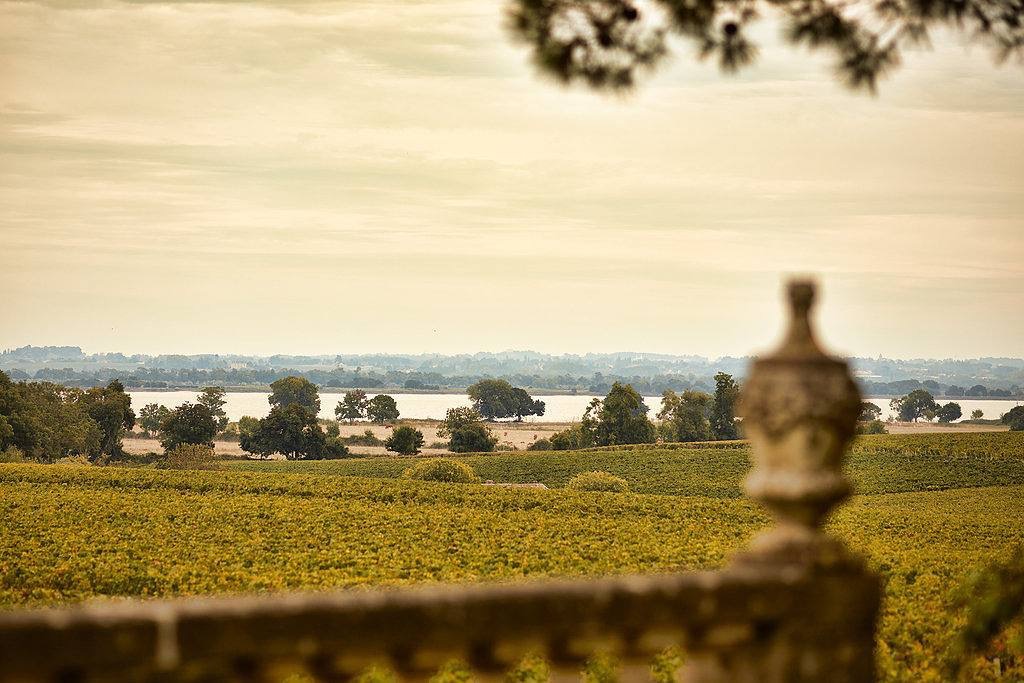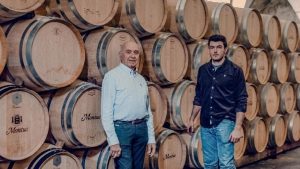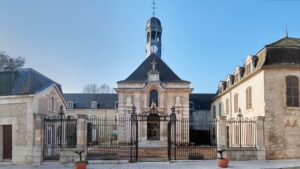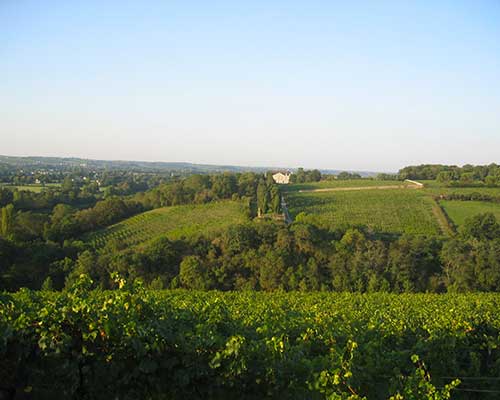 With an exceptional terroir and impeccable craftsmanship, La Coulée de Serrant is a leading light in biodynamic and French viticulture. We spoke to the man behind this iconic domain, Nicolas Joly.
With an exceptional terroir and impeccable craftsmanship, La Coulée de Serrant is a leading light in biodynamic and French viticulture. We spoke to the man behind this iconic domain, Nicolas Joly.
La Coulée de Serrant needs little introduction. This remarkable domain is one of only three single estate appellations in France today (the other two being Château-Grillet and Romanée-Conti) and the terroir has been recognised for centuries as a source of exceptional wine. Vines have been cultivated here continuously since Cistercian monks first planted them in the 12th century and 2017 will be the 887th consecutive vintage. The remains of the old monastery still stand as a reminder of its ancient beginnings…
The AOC spans 7 hectares and is a monopoly of the Joly family. The wine of La Coulée de Serrant has long been regarded a beverage of choice: Louis XI nicknamed it “la goutte d’or” (meaning “drop of gold”) while Louis XIV even payed the domain a visit. Its reputation as one of the finest whites in France lives on to this day.
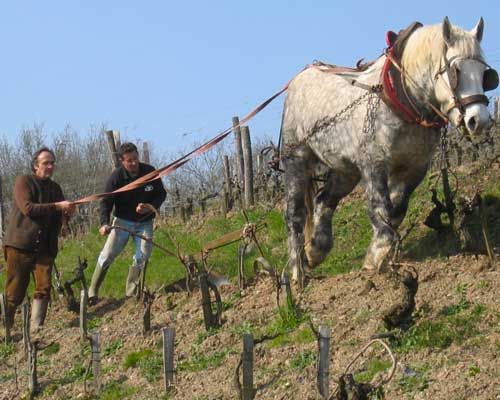
The Chenin vines are aged between 40 and 80 years and enjoy a sheltered south west facing position overlooking the Loire. It is here that the stream La Coulée de Serrant flows into the Loire, providing a unique microclimate.
Restored in the 1960s by Madame Joly, the domain has since been taken over by her son Nicolas. Nicolas is now one of the most emblematic wine producers and is considered one of the pioneers in biodynamic viticulture since the 1980s. He is a passionate advocate of biodynamics and believes the goal is to allow the terroir to express itself through the wine, to adapt to the specificities of every vintage. Not a single artificial product is used from the vineyard to the chai and the soils are tilled and treated with biodynamic concoctions and other herbal remedies made from nettles (to aid growth and balance) but also arnica, rosehip, honey and bee glue. According to Joly, these natural remedies “help the vine be more in touch with the environment that nourishes it and create deep aromas”. The vines are kept short so as to keep yields low because “Chenin is a grape variety that requires very low yields, around 20 to 30 hl/ha; in fact, it’s a very difficult variety”. The harvests are carried out in three to five tries by hand due to Joly’s refusal to carry out clonal selection (when underperforming vines are replaced with new vines grown from a mother vine).
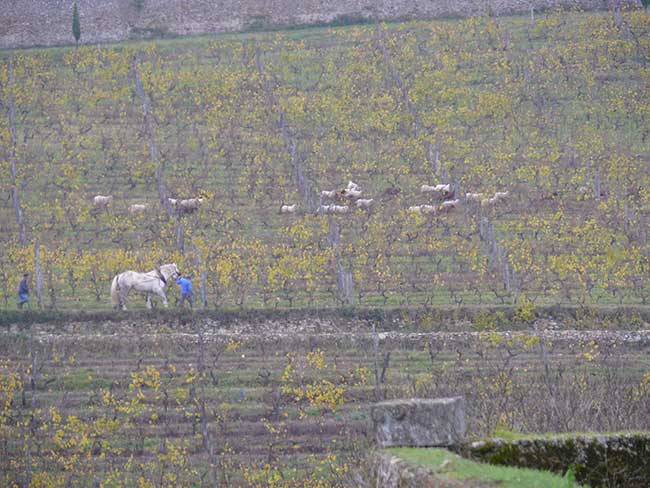
The vinification process is “hands off”, slow and natural: Joly doesn’t rack the must (he sees the lees as a living element that aids fermentation) and only indigenous yeasts are used. There is no clarification and temperatures in the chai during fermentation aren’t controlled. The idea for Joly is to let fermentation take place naturally. The wine is then matured in old oak barrels (500 or 600L) for seven to eight months before being bottled. Nicolas Joly also uses sound to encourage the yeast, in particular the sound of the word “LA” (which he believes is a sound linked to the sun).
An exceptional terroir, a dedicated biodynamic approach carried out masterfully and vinifications without the help of any technology or artificial product are the magic ingredients in the La Coulée de Serrant recipe. This unique domain produces wines that are universally celebrated for their tension, maturity, density, substance and energy. They belong to that special category of wines that are to be tasted before you die.
It’s recommended that you carafe the wine several times and open 24 hours before drinking.
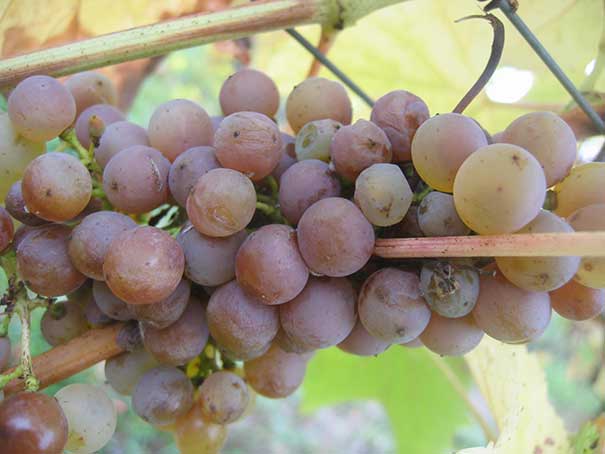
The philosophy of Domaine de la Coulée Serrant
“The very essence, that’s what you should taste! Today, many wines are ‘good’ because of the technology used in the cellar to make them. They might be well made but they lack soul, they don’t illicit emotions. At La Coulée Serrant we don’t use any technology whatsoever. The idea is to ascribe to an agriculture that allows life to express itself in its entirety. We want to encourage and support photosynthesis because this is what lets the vine convert a bud into leaves, flowers and then fruit. It’s a process of seizing energy and transforming it into substance. The plant needs to capture this energy in the right way, however, and in order to do this it has to be unhampered by chemical products. If the work in the vineyard is well carried out, then there is hardly anything that needs to be done in the chai. The winemaker’s role is to help give birth to the wine, not craft it. I often say that a good terroir is like a good musical instrument: it needs good ‘acoustics’, a good environment in order to best express itself. When done properly, biodynamics provides the best acoustics you can have in this respect. The winemaker is the musician: his decisions influence what goes into the bottle. I like to think of myself as a winemaker ‘curator’: I think that wine makes itself to a certain extent and that it’s not for the man to create it through artificial products. We simply need to help the wine express itself. That’s why I only use natural yeasts (which are plot specific) and no new wood. A fine terroir doesn’t need any embellishment, which is why, in my opinion, filtration or the use of ascorbic acid or potassium sorbate in place of sulphur aren’t the right way to make wine. The EU has even discussed banning them. Some winemakers filter their wines to a microscopic level and that destroys any trace of a wine’s soul. I believe that sulphur in tiny doses is the best option. Sometimes it’s possible to make a sulphite-free wine because it can occur naturally, but it makes transporting the wine extremely difficult. A small dose of sulphur doesn’t not change the taste of the wine.
At La Coulée de Serrant, we only use natural sulphur from volcanic origins where possible. We also treat the vines with sulphur as it’s far better than those products that poison the vines. Sulphur is often poorly understood. Don’t forget that cruciferous plants (mustard, rocket etc.) produce sulphur! It’s not necessarily an enemy.
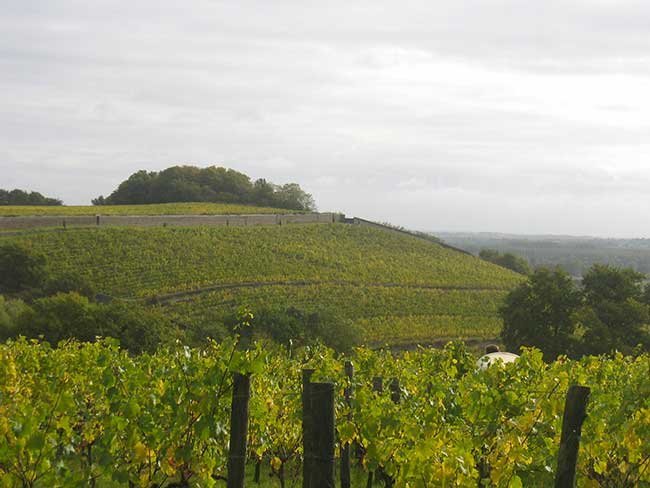
One of La Coulée de Serrant’s greatest assets is its exceptional terroir. The ancient monks were well aware of this. They knew to choose locations near water as this reflects the sunlight onto the vines. With such a terroir comes a responsibility to respect its heritage and nourish it, which is exactly what biodynamics aims to do.
Biodynamic viticulture concerns itself, above all, with subtleties. The biodynamic concoctions we use help the vines receive waves and cosmic energies which, from spring to autumn, nourish the vines. Light is an important consideration which is why we use a quartz-based preparation. Every concoction used in biodynamics is a link to a one of the elements in the solar system, without which the earth would be dead. It’s important to remember that earth doesn’t possess life, its part in the solar system means that it receives life. Without the solar system, there would be no life. Cosmic waves bring life. The problem today is that this link between the earth and the sun is disrupted by elements from anthropogenic sources, starting with the thousands of satellites in the sky that weaken the important messages that are carried down to earth in astronomic frequencies. In this context, biodynamics is more important than ever as it helps the vine find its Dionysian essence, which allows it to “be”. Imagine you’re in room with 200 people shouting at the top of their lungs. Biodynamics is like a mobile phone that allows you to hear what one single person is saying at the back of the room. So, biodynamics allows us to listen to the systems which give life to earth and break through the barriers imposed by modern civilisation. It’s the link to the subtle system that generates life. The only ‘negative’ effect is that all the animals seek refuge in our vineyard!
In fact, animals are very important at the domain and they all have their place (cows, goats, horses, donkeys, sheep, bees). Every species is a supplementary chord on the great musical instrument that is terroir. There is some excellent terroir that we have chosen not to plant vines in as nature doesn’t like monoculture.
To sum up, I would say that for me conventional viticulture doesn’t allow the wine to express itself. Photosynthesis is poisoned by artificial products and pesticides stop a vine’s ability from nourishing the soil. They may be well made wines, but they lack any soul. Biodynamics keeps wines rooted in their terroir and vintage. It’s a bit like the difference between natural beauty and plastic surgery! Wines that are too ‘technical’ are often good when first opened but they don’t last well. Biodynamic wines are the exact opposite: after a few hours, or even days, they become magical!”
See all wines from La Coulée de Serrant currently on sale
See all wines currently on sale on iDealwine
Search for the price of a wine
Not yet registered to buy wines with us? Sign up here for free!
Other things to read on the iDealwine blog:
A guide to the wines of Burgundy: what on earth is a climat?
Domaine Mongeard-Mugneret: Burgundy wine between wisdom and ambition
The principle grape varieties of France | Part 1: Bordeaux

